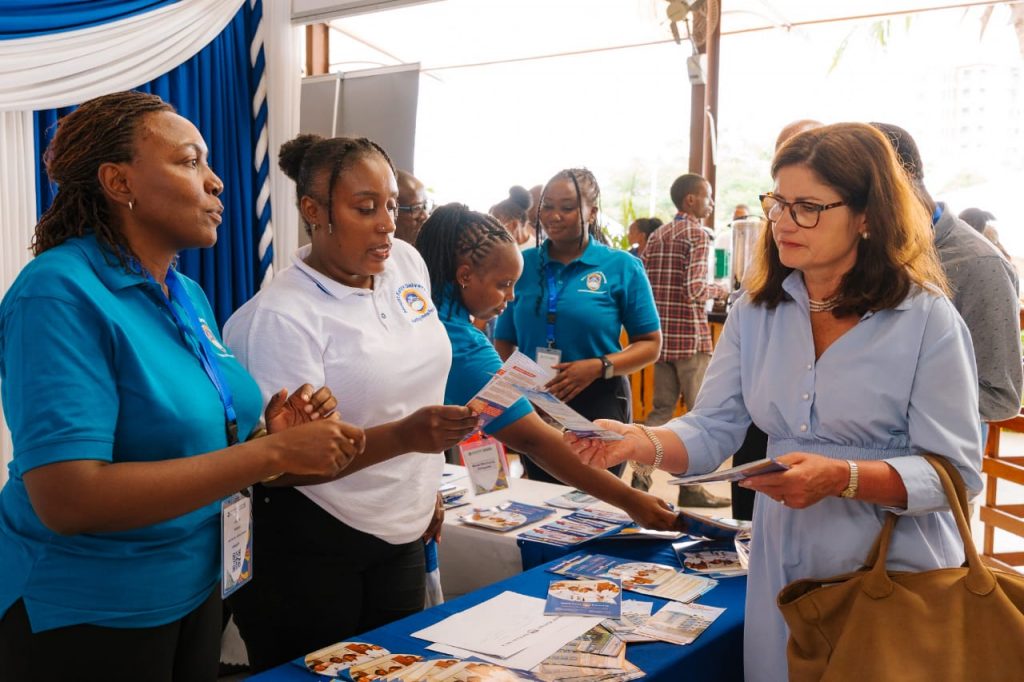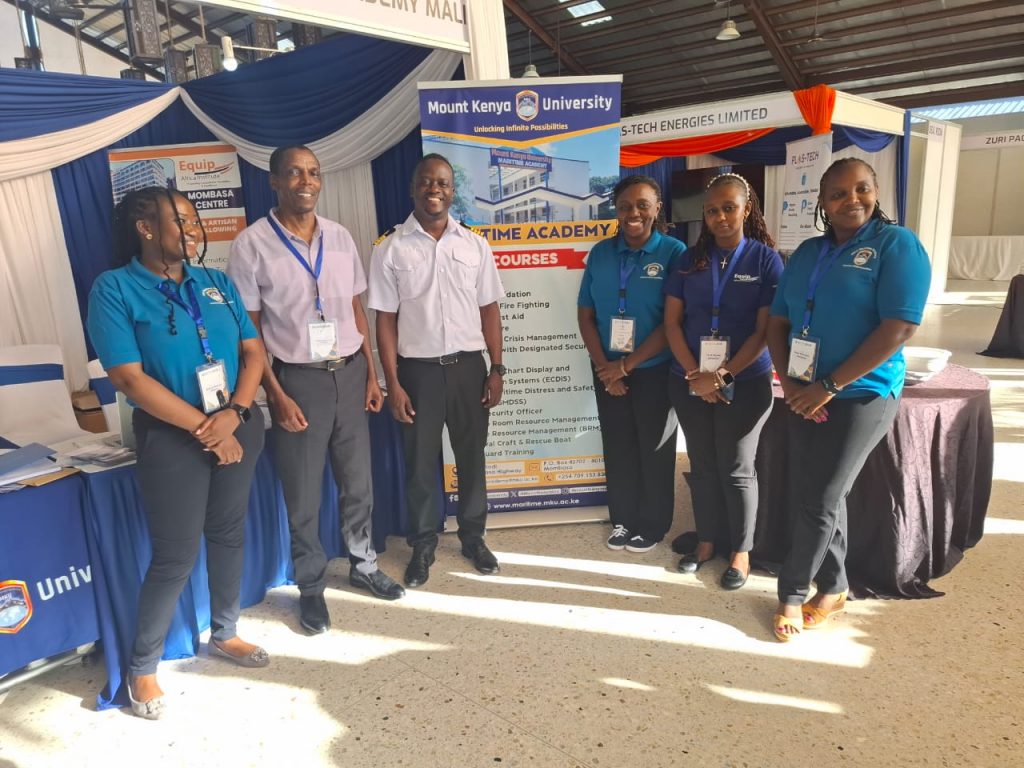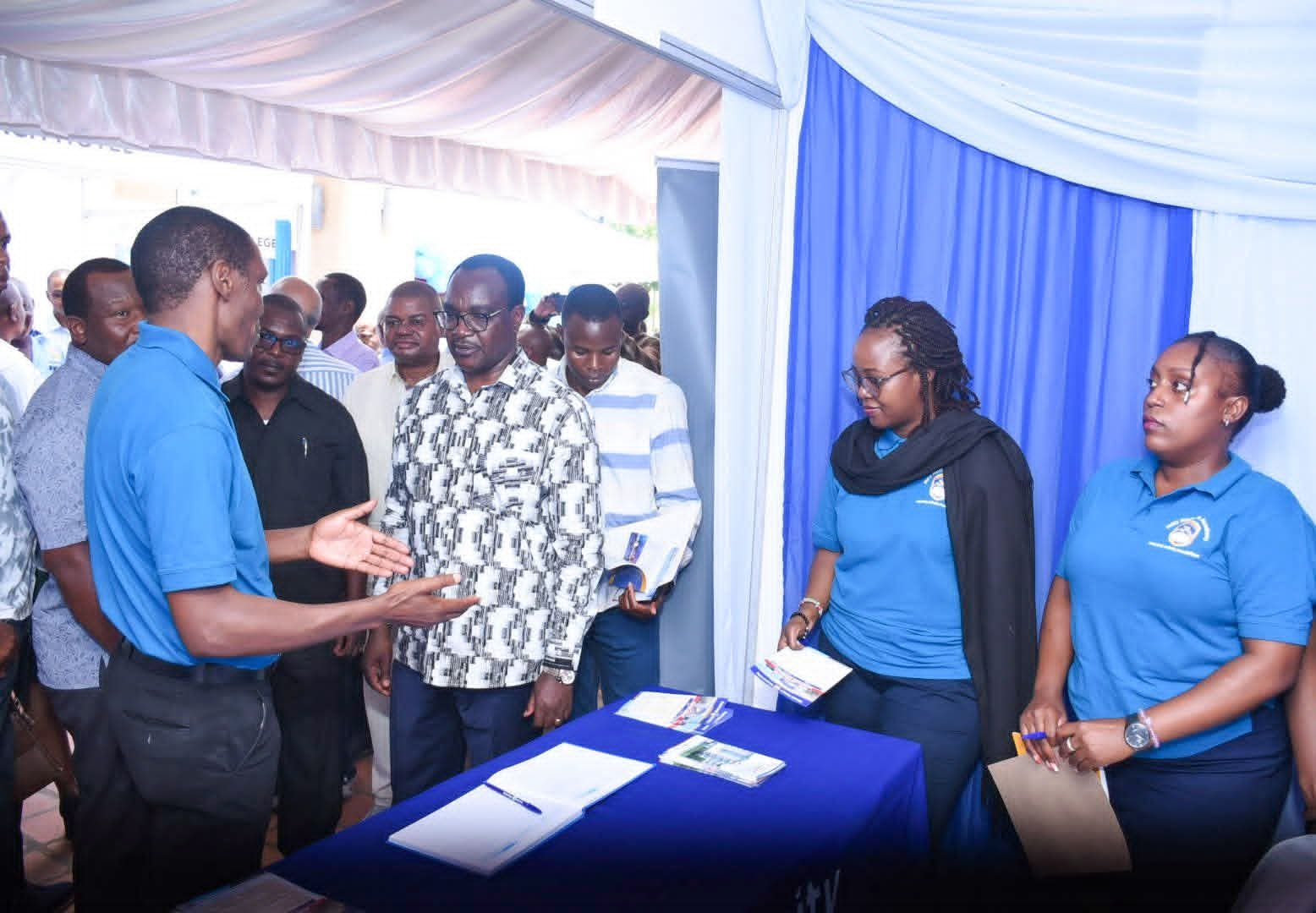Education Cabinet Secretary Julius Migos Ogamba has reaffirmed the government’s commitment to strengthening maritime training and positioning Kenya as a continental leader in the blue economy.
Speaking during the Blue Economy Innovation and Investment Summit 2025 in Mombasa, the CS announced that training will soon commence at the new Kenya Coast National Polytechnic Kwale Campus, which will specialize in maritime programs.
“This college will provide a state-of-the-art learning environment tailored to the unique needs of maritime training. It will offer comprehensive programs in marine transport, port logistics, and onboard operations, equipping our youth with the skills needed to excel in the global maritime industry,” he stated.

Migos noted that the summit was not merely an exhibition, but a strategic platform for dialogue, networking, and aligning training with industry demands.
“Together, we can ensure our graduates are job-ready and able to meaningfully contribute to the sector’s growth,” he added.
The CS was speaking at the celebrations marking World Maritime Day themed “Our Ocean, Our Obligation, Our Opportunity.”
The event was hosted by the Kenya Maritime Authority (KMA) in collaboration with local and international partners, drawing ambassadors, policymakers, CEOs, scholars, and industry leaders.
Among the notable participants was the Mount Kenya University (MKU) Maritime Academy, which showcased its training programs and milestones at its exhibition stand.
The academy hosted EU Ambassador to Kenya H.E. Henriette Geiger, alongside other distinguished guests.
The academy’s participation also marked the first anniversary of its accreditation by KMA, a recognition that has propelled its growth from offering its flagship Standards of Training, Certification, and Watchkeeping (STCW) Basic Training to over 12 specialized programs.

According to MKU Executive Director Prof. Evans Kerosi, the academy’s programs ensure graduates meet international standards required for marine employment.
“Our students now meet mandatory requirements to serve aboard marine vessels, boosting their job competitiveness in the global maritime sector,” he said.
Located in Malindi, the academy was established at a time when Kenya is heavily investing in maritime trade, safety, and education to harness the blue economy’s potential.
KMA Chairman Ahmed Kolosh highlighted recent progress in strengthening maritime governance, including Kenya’s National Action Plan to cut greenhouse gas emissions from ships and feasibility studies on e-fuel production and a Green Shipping Corridor.
“Through the EU-funded Go Blue Project, we have acquired five modern search and rescue vessels, significantly enhancing Kenya’s emergency response capacity,” he said.
KMA Director-General Omae Nyarandi added that reforms in licensing, certification, and regulation had boosted Kenya’s global standing.
Meanwhile, Prof. Shaukhat Abdulrazak, Principal Secretary for Science, Research and Innovation, urged stronger collaboration between government, academia, and innovators.
“Research must translate into commercially viable ventures that make a tangible impact on society,” he said.
The summit brought together global partners such as the Royal Danish Embassy, SIMAC Training, and GIZ-TVETA, alongside leading shipping companies including Maersk, CMA-CGM, Kenya National Shipping Line, Express Shipping Line, and Bahri Ship Management.
Bandari Maritime Academy CEO Dr. Eric Katana reaffirmed the academy’s mission to provide internationally compliant training and strategic partnerships that build capacity for Kenya’s maritime workforce.
In his closing remarks, CS Migos urged all stakeholders to embrace collaboration for Kenya’s maritime future.
“Let us work together to chart a new course for this sector—one characterized by excellence, inclusivity, and sustainable progress,” he said.
Ends…………./

Facebook Comments